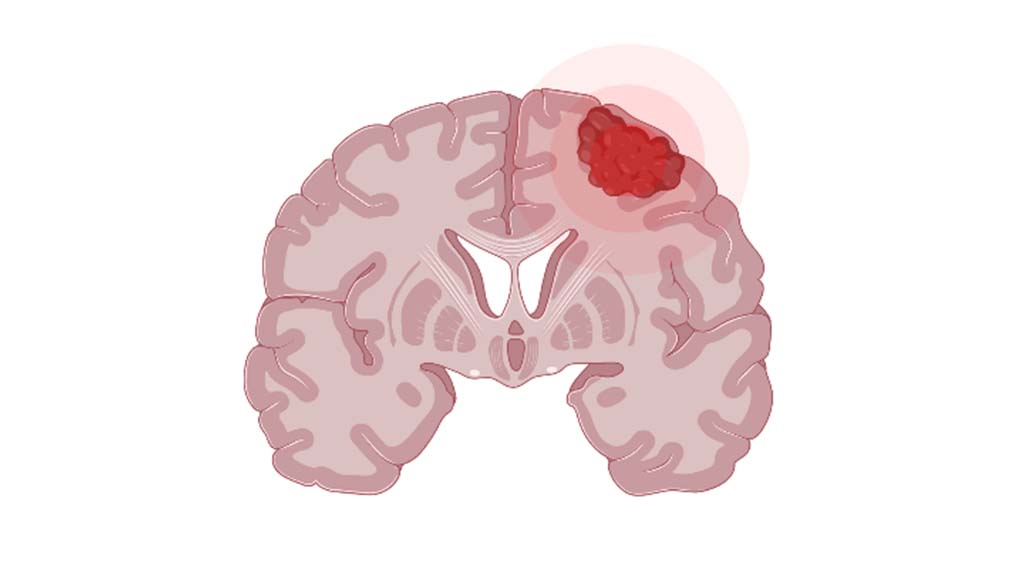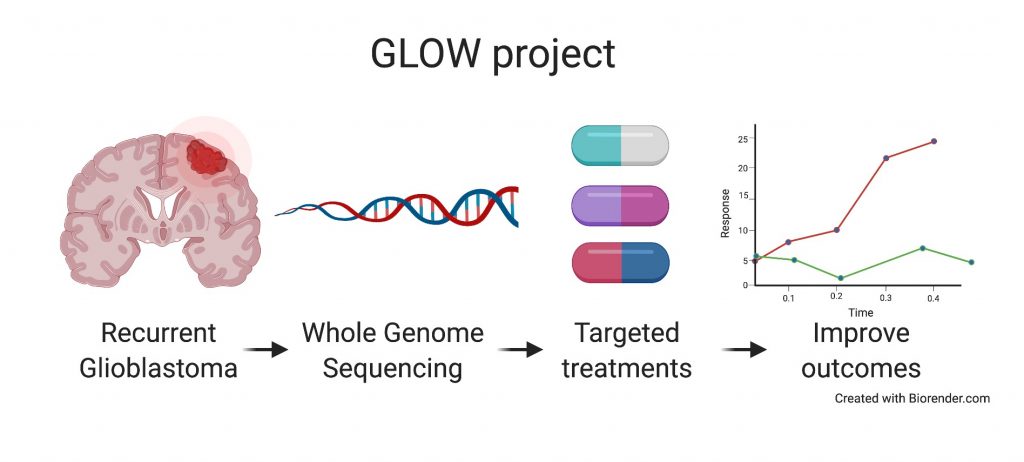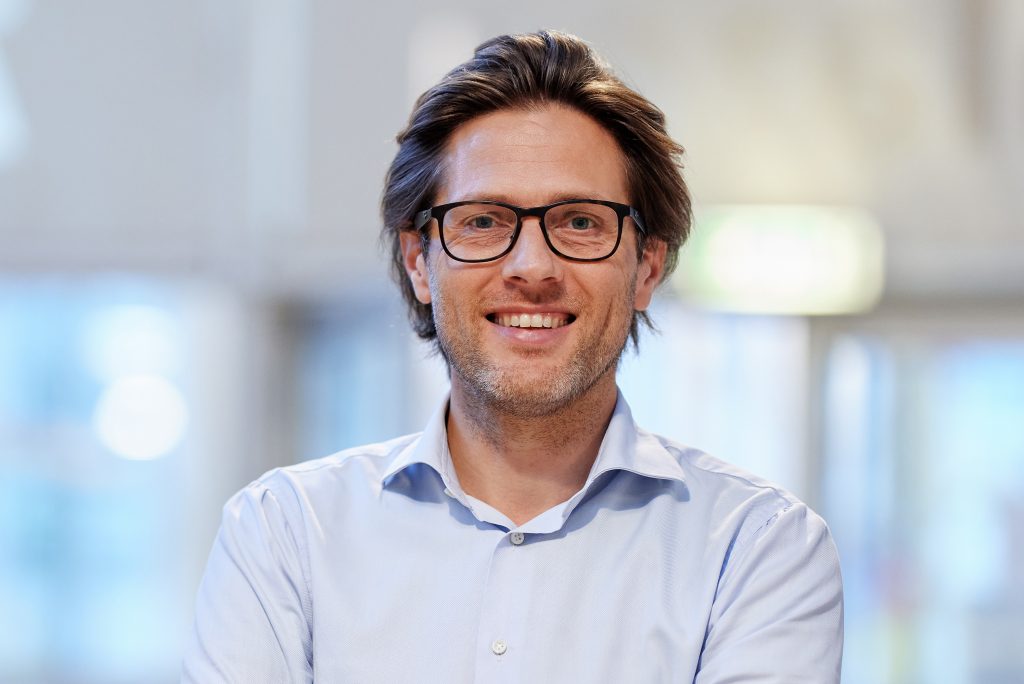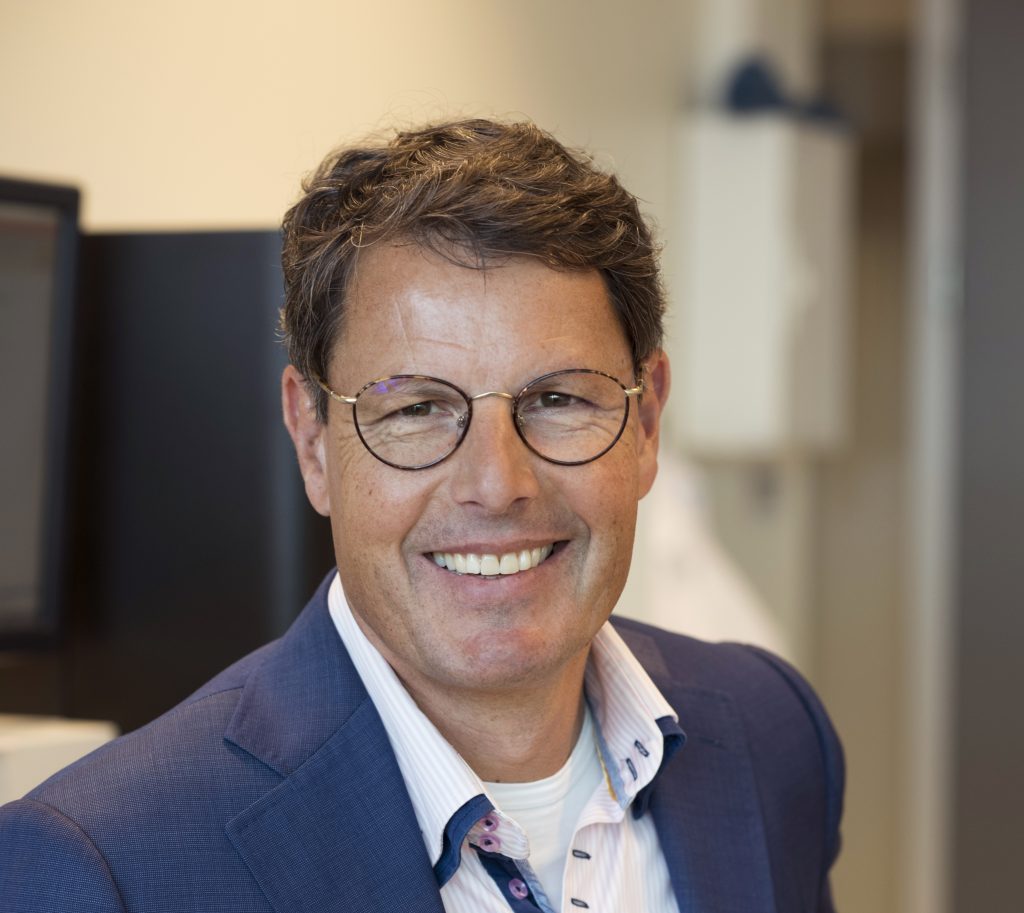New CPoC grant awarded: GLOW – GLioblastoma targeted treatment Option maximisation by WGS

Oncode Institute has announced that the 13th grant within the Clinical Proof of Concept programme has been awarded. Oncode Investigator Edwin Cuppen (UMC Utrecht), in collaboration with clinicians Filip de Vos (medical oncologist at UMC Utrecht) and Marike Broekman (neurosurgeon at Haaglanden MC), will investigate the added value of whole genome sequencing on tumor tissue obtained from glioblastoma patients during a routine operation for a first relapse after standard treatment with chemo– and radiotherapy. The goal of the GLOW project is to find suitable treatments with targeted medication as well as additional treatment options.
Glioblastomas are the most common malignant primary brain tumors, affecting approximately 1,000 patients per year in the Netherlands. The prognosis for these patients is very unfavorable: only ~17% is still alive after two years. Despite extensive research into the biology of these tumors, the standard of care has hardly changed over the past 15 years. Even after intensive chemoradiation, the median survival is only 15 months after initial diagnosis. New treatment strategies are therefore urgently needed.
The aim of this project is not only to provide additional therapeutic options for patients with recurrent glioblastomas, but also to contribute to new insights into the biology of these deadly tumors. The project therefore has the potential to change the standard care for patients with glioblastoma. The impact of the extensive DNA analysis by means of whole genome sequencing of the tumor will be evaluated in a total of 160 patients by Hartwig Medical Foundation. Based on the outcomes, the patient can thus be offered more treatment options based on the available targets, whereby the study will monitor the survival of patients with or without targeted therapy.
Clinician Filip de Vos explains why this research is so important: “The unmet clinical need of discovering new treatments is almost felt palpable in operation and consultation rooms when we treat glioblastoma patients. GLOW presents a unique opportunity to examine the promise of whole genome sequencing in delivering accurate personalized treatment as an addition to expert neuro-oncology care in major Dutch centers.”

Monique Lindhout, director of Hersenletsel.nl, says: “The prognosis for most patients with a primary brain tumor remains very limited and this worries us. We are therefore pleased that the GLOW project can start. We think the project could provide new insights into the treatment of these deadly tumors and hopefully change the standard of care for the better. We find it important that the patient perspective in the research meetings will be represented and will gladly make an active contribution.”
GLOW brings together neurologists, neurosurgeons, medical oncologists and pathologists from all Dutch neuro oncological centers in order to improve the outcome of patients with glioblastoma, by making use of the strength of whole genome sequencing in offering patients personalized treatment options. Collaboration between all centres involved in the care for Glioblastoma-patients may contribute to bring the standard of care to a higher level.
Oncode Institute aims to link fundamental and clinical research to enable efficient translation of promising findings into novel diagnostic methods and clinical treatment strategies. Oncode created the clinical Proof-of-Concept (cPoC) fund to support the clinical translation of Oncode’s fundamental research.
You read an article in the category Learning healthcare system. You may also be interested in Personalized treatment, Research or Whole genome sequencing.All news
Also read

22 impactful scientific publications in 2022
In 2022, research groups from all over the world published 22 scientific papers in which data from the Hartwig Medical …

Whole Genome Sequencing feasible in clinical practice
Interim WIDE analysis gives researchers more confidence in a positive outcome. On 21 September 2020, Dr. Kim Monkhorst, who is a …

In the media: Rarity – Personalised cancer treatment – fact not fiction
Imagine a world in which each person’s cancer is treated with a personalised, targeted medical treatment regimen. A world in …

Cancer is caused by DNA mutations. There are an increasing number of drugs available that act on specific errors in the DNA of an individual patient’s tumor. A drug that doesn’t fit, like a key in a lock, will not work, while the risk of side effects remains.